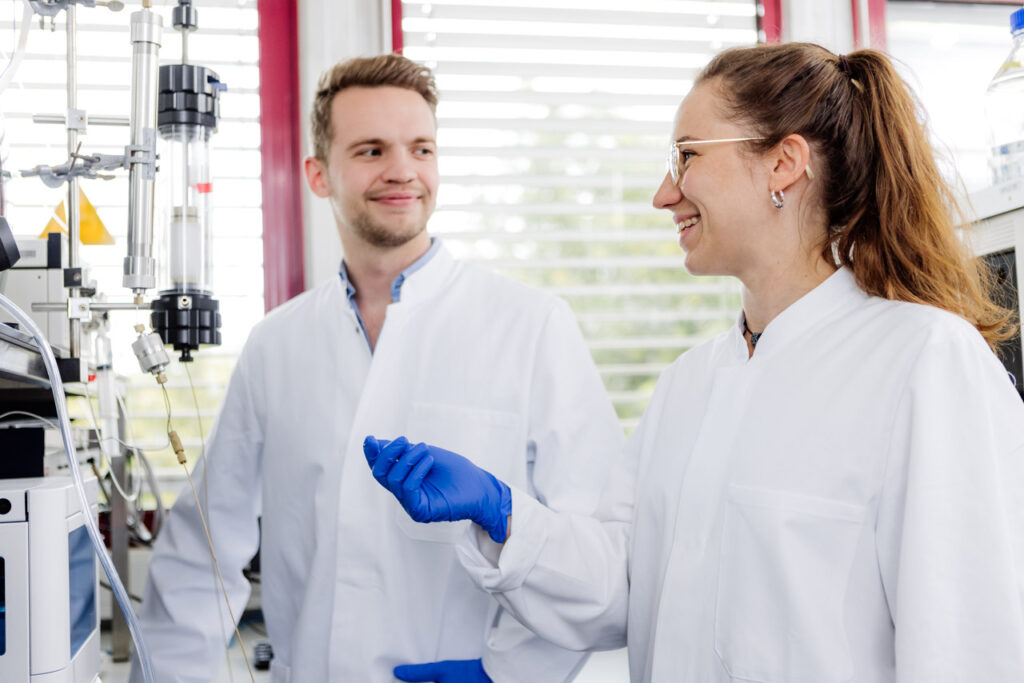Plastic waste poses a huge environmental challenge. But what if we could use it as a valuable resource? Our current publication shows how this is possible.
An innovative two-step biocatalytic process makes it possible to convert polyethylene terephthalate (PET) – known from plastic bottles – into high-quality products.
Research highlights:
- Enzymatic hydrolysis: PET is broken down into its basic building blocks (terephthalic acid and ethylene glycol).
- Genetically optimized Pseudomonas putida: This microbe processes the monomers efficiently.
- Production of biopolymers and biosurfactants: These produce, for example, cyanophycin and rhamnolipids – important components for cosmetics, agriculture, and medicine.
Our approach demonstrates how PET waste can be not only recycled but also upcycled into new, innovative products. The WSS research center catalaix is working on solutions to ensure sustainable value creation paths and thus advance a multidimensional circular economy.
More about the study:
https://www.sciencedirect.com/science/article/pii/S0960852424015414?via%3Dihub
Welsing et al., 2025
Pictures: RWTH Aachen University
